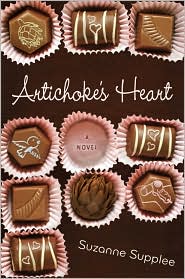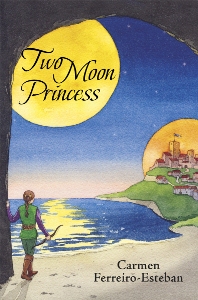This review contains affiliate links, which earn me a small commission when you click and purchase, at no extra cost to you. Thank you for supporting my small business and allowing me to continue providing you a reliable resource for clean book ratings.
Weight is always a tricky subject: Writing about it, talking about it, thinking about it … everyone seems to have an opinion on it, obsess over it (or say they don’t obsess over it), or compare themselves to others. It’s a curse of today’s media-saturated age.
Rosemary Goode is overweight: she’s got 200 pounds on her 5-foot-6 frame. Her problem: food. She loves it. Craves it. Eats too much of it. Which is a problem in and of itself, but is also a symptom of a larger problem: her mom. Rosemary could kind of handle being fat if it weren’t for her mom and aunt constantly harping about it.
Rosemary’s mom, Rose Warren Goode, is the owner of Heavenly Hair in Spring Hill, Tennessee. She’s a single mom who got pregnant with Rosemary when she was 17. She’s worked hard all her life: to be a successful businesswoman, to be a “good” mom, to be happy. She’s really close to her sister, Mary, and spends most of her free time with her, instead of with Rosemary. Rosemary resents this. But, because this is the South — and the book’s voice perfectly captures Southern charm and determination — Rosemary just puts a happy face on, and goes through life the best she can. Because that’s what’s expected of her.
Except she’s not happy.
Then she meets Kyle Cox. Well, “meet” is pretty strong: she reads about him in the school paper — he’s a jock — and he’s in her study hall. And he smiles at her — which is the first little step she needs to get off her bum and do something about her habits. She starts drinking diet shakes exclusively, starts exercising, enrolls in an experiment to study the short-term effects of counseling on weight loss. And when she starts losing weight she starts feeling better about herself… a little at a time. It’s not a sudden, miraculous overnight change, and once the pounds started coming off, she begins to come out of her shell.
It’s not a bad fat-girl book, or a bad book about body image. But, on the other hand, it’s not perfect either: it sends off the message that all a girl needs to be happy in life is to lose the weight. But then, there can probably never be a fat-girl book that will please everyone. The issue is just too volatile, which is too bad. (But that’s a subject for another post.)
Rated: Mild. References to sex (but no actual sex on- or off-“screen”) and instances of mild swearing.
Click here to purchase your copy of Artichoke’s Heart on Amazon.




